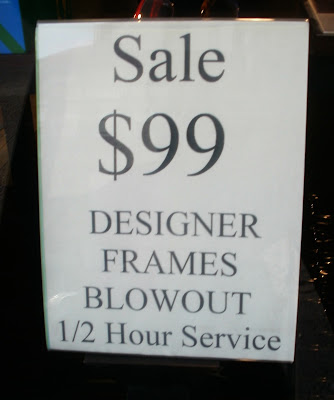But I digress-- woman used to hate to wear glasses especially ( --there was the famous Dorothy Parker line, "men seldom make passes at girls who wear glasses"--) though growing boys sure did not like being called " four eyes" ( I did not wear glasses until I was over 16 and suffering all kinds of symptoms that turned out to be part of the thyroid cancer I was suffering from)..
Seems today people like Tina Fey and others in show biz have led the way in making wearing glasses a kind of "look" that more people enjoy.
Of course, contact lenses now exist that will even correct for stigmatism and then there is the extreme measure of laser surgery ( a woman Spanish professor of mine at City Tech some years back had her eyes "done" and I remember she had quite a few difficulties and adjustments to make once the procedure had been completed...it is not for everybody, and some of its early adherents now question whether it is really a good idea).
Finally, let me see if there is anything of value on the internet about Designer Glasses:
(Here I had to delete a bit of the history of glasses because of technical difficulties...will just take a bit from this really interesting website I found)
 | Though roughly made, early spectacles were full of charm and rapidly became a symbol of wisdom and learning. Later glasses quickly became more technically sophisticated. One of the most important industries, the German spectacles industry, was formulated in 1535 with the issuance of regulations of the Nuremberg spectacle makers’ guild. In London in 1629, King Charles I granted a charter incorporating the Worshipful Company of Spectacle Makers. Unfortunately all of their earliest records were destroyed in the Great Fire of London in 1666 except for that charter. During most of the 17th century, Germany remained the center of spectacle making. Germans made the finest frames while the Italians made the highest quality lenses. The early lenses were still cloudy until manufacturing developed and flint was added to make the glass clearer. Genuine, original pre-1700 spectacles are exceedingly rare today and are highly treasured by museums and collectors alike. |



No comments:
Post a Comment
Please leave a comment-- or suggestions, particularly of topics and places you'd like to see covered